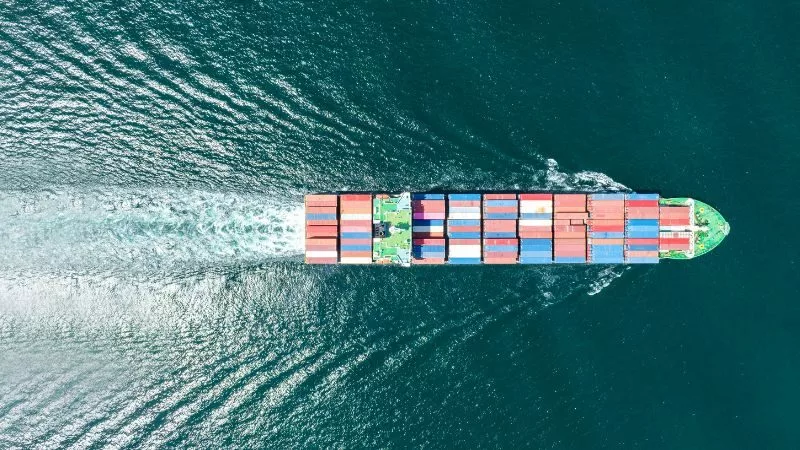
Are you in need of transportation or logistics assistance for shipping between China and Indonesia? As a leading provider of freight services to Indonesia, we have a variety of options tailored to meet your shipping needs.
We can arrange for air freight or ocean container shipping, whichever best suits your schedule and budget. Our dedicated team is committed to finding high quality yet cost-effective transportation solutions for your goods traveling from China to Indonesia.
Whether you need to import or export, this comprehensive Indonesia country guide contains important information to help you plan your shipment. You’ll find details on estimated transit times, applicable rates, customs requirements and processes, as well as any duties or taxes involved in transporting cargo to and from China and Indonesia.
Please contact us if you would like assistance comparing service options or creating a customized shipping plan for your next China-Indonesia trade route.
Key Locations for Shipping
When shipping from China to Indonesia, there are several key locations you should be aware of to ensure a smooth and efficient process. Here are some of the main ports and cities involved in the shipping process:
Main Airports in China and Indonesia:
Airports
| China | Key Information | Indonesia | Key Information |
|---|---|---|---|
| Beijing Capital International Airport (PEK) | The busiest airport in China, a major cargo hub with connections to Indonesia | Soekarno–Hatta International Airport (CGK) | The main airport serving the Jakarta region, handles over 60% of Indonesia’s airfreight |
| Shanghai Pudong International Airport (PVG) | One of the world’s largest cargo airports, offers direct flights to Indonesia | Juanda International Airport (SUB) | Main air cargo gateway outside Jakarta, connections to many Chinese airports |
| Guangzhou Baiyun International Airport (CAN) | Taking off from Baiyun Airport, you can fly to more than 20 cities and regions in the Asia-Pacific within 6 hours. | Kualanamu International Airport (KNIA) | Kualanamu is the third largest airport in Indonesia after Jakarta and Bandung. As of 2018, it was the fifth busiest airport in the country. |
Main Seaports in China and Indonesia:
Seaports
| China | Indonesia | ||
|---|---|---|---|
| Port of Shanghai | World’s busiest container port, regular services to Jakarta and other Indonesian ports | Port of Tanjung Priok | Indonesia’s busiest port located in Jakarta, handles over 50% of transhipments |
| Port of Shenzhen | Strategically located busy port near Hong Kong, efficient infrastructure to Indonesia | Port of Tanjung Perak | Major regional port serving Surabaya, connections from many Chinese ports |
| Port of Ningbo-Zhoushan | The largest port in China by cargo tonnage. Services routes to Indonesia including the port of Belawan. | Port of Belawan | The main seaport of Medan, a gateway for goods entering northern Sumatra from China |
| Port of Guangzhou | This port offers many direct shipping services to Indonesia, which can shorten transit times and lower shipping costs. | ||
| Port of Xiamen | One of the busiest ports in China and a vital international shipping hub | ||
| Port of Qingdao | Qingdao Port has the world’s largest 400,000-ton ore terminal, 450,000-ton crude oil terminal, and a container terminal that can dock the world’s largest 24,000-ton ship. |
In addition, Ningbo and Tianjin ports across China offer various shipping options to Indonesia, each with its own benefits depending on your specific requirements.
Time and Cost of Different Shipping Methods

Different Shipping Solutions for Importing From China to Indonesia
When shipping cargo from China to Indonesia, you have four options: air freight, sea freight, rail freight and express. Understanding the differences between these modes of international freight will help you make informed decisions that best suit your needs.
Air Freight: Air freight from China is a fast and efficient method of transporting your goods. Typically, air shipping takes around 3-7 days for the items. However, it is important to consider that air transportation is generally more expensive and may also have restrictions on the types of items they can handle.
Sea Freight: Sea freight, or ocean freight, is the most common method of shipping containers from China to Indonesia. This mode of transportation is versatile, reliable, and can accommodate large or heavy items.
Express Shipping: Express shipping is the fastest method for transporting goods from China to Indonesia. Luckystar Logistic provides door to door shipping with real-time tracking and online customs clearance.
The Delivery Time and Cost of Shipping from China to Indonesia
Air Freight:
While faster than ocean transport, air cargo comes with its own set of regulations, restrictions and best practices to navigate. This chapter will provide an overview of key considerations and requirements for importing and exporting goods from China to Indonesia by airplane.
Cost of Air Freight
| Weight Range | Price Per KG (USD) | Transit Time (Days) | |
| Shanghai to Jakarta | Rate for 100-299KGS | 2.5 | 2-3 |
| Rate for 300-1000KGS | 2.5 | 2-3 | |
| Rate for 1000+KGS | 2.5 | 2-3 | |
| Guangzhou to Jakarta | Rate for 100-299KGS | 3 | 2-3 |
| Rate for 300-1000KGS | 3 | 2-3 | |
| Rate for 1000+KGS | 2.5 | 2-3 |
Key information you need to know:
Prohibited Air Cargo
- Pressurized containers and bottles containing gases such as oxygen, acetylene, butane, propane, etc.
- Flammable materials like matches, lighters, fireworks, gasoline, solvents, etc.
- Corrosive or toxic substances, including acids, alkalis, wet cell batteries, mercury, poisons, etc.
- Items containing strong magnets or electromagnetic fields that can interfere with aircraft electronics
- Biological products, pathogens, medical waste or specimens requiring special permits
- Oxidizing materials and organic peroxides
- Goods displaying hazard labels for flammability, toxicity, corrosiveness or other risks
- Perishable items such as fresh fruits, vegetables and meat unless frozen or canned
- Used items, second-hand goods, or those contaminated with pests, dirt, etc.
Size and Weight Limits
- Maximum size for air freight boxes/pallets according to IATA regulations: 158 cm (length) + width + height combined
- Maximum single package weight: 30 kg for cargo, 50 kg for documents/samples
Sea Freight:
- Shipping Less Than a Full Container (LCL):
For smaller shipment volumes, companies can opt to ship less than a full shipping container. With this method, multiple partial shipments from various companies are consolidated and loaded together into a single container. This helps maximize space utilization and reduce costs compared to filling an entire container. The LCL method tends to work best for companies shipping more modest quantities or to multiple destinations.
2. Shipping Full Container Loads (FCL):
Companies with enough cargo volume will often fill and ship entire containers. Shipping full container loads allows for transporting large quantities of goods in one shipment. It also enables faster transit times since the container can be transported directly to the consignee after arriving at the destination port. FCL shipping works well for companies with sufficient volumes for full containers and those prioritizing faster delivery.
Standard shipping containers have internationally recognized dimensions and capacities used for ocean and intermodal freight transport. Some common container types include:
- 20-foot Equivalent Unit (TEU): Measuring approximately 20 feet long, 8 feet wide, and 8.5 feet tall, with a capacity of around 1,172 cubic feet or 33 cubic meters.
- 40-foot Equivalent Unit (FEU): Dimensioned at 40 feet long, 8 feet wide, and 8.5 feet tall, commonly referred to as a “40-footer”, holding about 2,390 cubic feet or 68 cubic meters.
- 40-foot High Cube (HQ) container: Similar dimensions to the FEU but 1 foot taller at 9.5 feet, expanding its interior volume to around 2,694 cubic feet or 76 cubic meters.
Cost of Ocean Shipping (FCL)
| Route | Shipping Type | Cost(USD) | Transit Time |
|---|---|---|---|
| Shanghai – Jakarta / Surabaya | FCL 20′-40′ | $200-400 | 11 days port-to-port |
| Shanghai – Semarang | FCL 20′-40′ | $300-600 | 14 days port-to-port |
| Shenzhen – Jakarta / Surabaya / Semarang | FCL 20′-40′ | $180-280 | 6-8 days port-to-port |
| Ningbo – Jakarta | FCL 20′-40′ | $220-400 | 11 days port-to-port |
| Ningbo – Surabaya | FCL 20′-40′ | $200-400 | 12 days port-to-port |
| Ningbo – Semarang | FCL 20′-40′ | $300-450 | 14 days port-to-port |
Cost of Ocean Shipping (LCL)
| Route | Shipping Type | Cost(USD) | Transit Time |
|---|---|---|---|
| Ningbo – Jakarta /Surabaya | LCL (1-9 CBM) | $10 /CBM | 13 days port-to-port |
| Ningbo – Semarang | LCL (1-9 CBM) | $20 /CBM | 20 days port-to-port |
| Shanghai – Jakarta / Surabaya | LCL (1-9 CBM) | $10 /CBM | 11-13 days port-to-port |
| Shanghai – Semarang | LCL (1-9 CBM) | $20 /CBM | 20 days port-to-port |
| Shenzhen – Jakarta | LCL (1-9 CBM) | $5/CBM | 5 days port-to-port |
| Guangzhou – Jakarta | LCL – Double Clearance (min. 1 CBM) | $375 (USD)/CBM | 25 days port-to-port |
Please note that the rates shown are only estimates to provide an indication of pricing. Actual quotes will vary depending on the specific details of the shipment, such as the goods, weight, dimensions, delivery timeline, and other requirements. Ourfreight forwarding agent works with each customer individually to develop customized shipping solutions tailored to their needs and budget. You can expect competitive pricing that aims to deliver great value. Please contact us to discuss your shipping needs – Luckystar looks forward to putting together an unexpected price for you.
Special Sea Freight between China and Indonesia
Specialized sea freight options exist between China and Indonesia to accommodate various cargo types. Reefer containers, oversized shipments, bulk transport, and roll-on/roll-off vessels each offer tailored solutions.
1. Reefer Containers perishable goods and temperature-sensitive chemicals require stable environments during transit. Reefer containers are outfitted with climate control technology to maintain optimal temperatures and humidity inside. This ensures products arrive in ideal condition.
2. Oversize Cargo (OOG) items exceeding standard container dimensions necessitate specialized equipment. Open-top and flat rack containers provide flexibility for large or non-standard shapes. Proper planning avoids additional oversized fees from carriers.
3. Bulk Transport are designed to transport bulk commodities like grains, minerals and liquids in bulk without containerization. Their large holds facilitate the efficient loading of materials in high volumes.
4. Ro-Ro Vessels Roll-on/roll-off ships feature drive-through ramps allowing self-propelled cargo like vehicles, machinery and construction equipment to be driven on and off during loading/unloading. This streamlines the transport of large volumes between ports.
Selecting the right shipping method accounts for cargo attributes, minimizing risks to delivering goods safely between China and Indonesia by sea. We, LuckyStar can recommend optimal solutions tailored to each shipment.
Essential Documents in Shipping From China to Indonesia

When shipping from China to Indonesia, it’s important to have all the necessary documents in order. This process ensures a smooth customs clearance and helps you avoid any potential delays. In this friendly guide, we’ll go through some of the essential paperwork you’ll need when shipping goods.
- Commercial Invoice: A commercial invoice provides key information about your shipment, including the buyer and seller’s details, the product description, and the shipment’s value. This document is essential for customs clearance, as it assists authorities in assessing the appropriate duties and taxes.
- Packing List: The packing list offers an inventory of the items in your shipment. It typically includes information such as the number of packages, package types, package dimensions, and the items within each package. This document is crucial for verifying the shipment’s contents and helps customs ensure the products being shipped are accurately declared.
- Bill of Lading (BOL): The bill of lading is a transport document that serves as your contract with the carrier. It provides information about the shipment, the carrier’s obligations, and the terms for delivering the goods. In the case of sea shipments, this document is called an Ocean Bill of Lading, and for air shipments, it’s referred to as an Airway Bill.
- Certificate of Origin: Often required by customs, the certificate of origin verifies the country where the goods were manufactured. This document is used to determine if any preferential tariffs or trade agreements apply to your shipment.
- Letter of Credit: A letter of credit, often used in international trade, is a financial instrument issued by a bank that guarantees payment to the seller once the specified conditions are met. This document helps to reduce the risk for both the buyer and the seller in international transactions.
Prohibited Items
Prior to shipping goods to Indonesia, importers should research which products have constrained or banned entry. Knowing the import restrictions upfront can help avoid delays, penalties or even outright rejection at the border. Some restricted goods include particular foods, drugs, weapons, antiquities and other items posing health, safety or cultural risks based on government assessments.
| Category | Items |
|---|---|
| Banned Imports | Alcoholic beverages Animal products Live animals (except pets) Narcotics and illegal drugs Pornographic/anti-Islamic materials Weapons and explosives Radioactive and hazardous materials Tobacco products |
| Restricted Imports | Jewelry Wet blue leather Minerals and ores Paints Stones and stamps Antiques Counterfeit products Waste materials Communications equipment Compact discs Computer software Cotton seeds Food products Liquids Medical equipment Precious metals and stones Plants and seeds Textiles Personal electronics (may require permits) |
| Other Import Regulations | Import permits required for commercial goods Halal certification is required for food items Customs duties and taxes apply Goods subject to inspection |
Tax and Fees in Shipping
Tariff and the HS code
Completing the necessary customs procedures is important when importing goods into Indonesia. The first step involves determining the appropriate Harmonized System (HS) code for the product.
The HS code is an internationally standardized classification method for goods based on attributes like composition and intended use. Both the item’s HS code and origin country help establish the applicable import duties and taxes.
To search for a product’s HS code, importers can reference online directories organized by industry and item type. Working with a licensed customs broker is another option, as they have expertise navigating international trade rules. While independent research is possible, brokers can save time and clarify complex aspects.
Once the HS code is identified, the importer can calculate estimated import fees. The Indonesian Customs and Excise Department website allows searching by HS code to view the specific duty and tax rates imposed on that good. Submitting the code brings up a detailed results page.
This process provides visibility into all potential import-related costs at the border. With the HS code and tax information in hand, companies can appropriately budget for and manage duties as part of their international shipment planning with Indonesia.

The 2023 Import Tax in Indonesia
When importing into Indonesia, your shipment may also be subject to import duties and taxes. Duties are based on the value of the goods and their specific Harmonized System (HS) classification, which determines the applicable rate. As a shipper, it is your responsibility to ensure that you are accurately declaring the value and classification of your goods to avoid penalties.
Indonesia Import Tariffs
| Year | Key Development |
|---|---|
| 2011 | Targeted tariff refunds for 16 manufacturing industries including automotive, electronics, food, etc. |
| 2023 | Finance Ministry Regulation No. 96 expands the most-favored-nation (MFN) tariff list from 4 to 8 product categories: |
New MFN Tariffs
| Product | Tariff Rate |
|---|---|
| Bicycles | 25-40% |
| Cosmetics | 10-15% |
| Steel | 0-20% |
| Watches | 10% |
Existing MFN Tariffs
| Product | Tariff Rate |
|---|---|
| Textiles | 5-25% |
| Footwear | 5-30% |
| Luggage | 15-20% |
| Books | 0% |
Other Import Charges
- Fixed import tax: 7.5%
- Value-added tax: 11%
Insurances in Shipping
When you’re shipping goods from China to Indonesia, it’s essential to consider insurance options to protect your cargo. One of the most important types of coverage is cargo insurance, which safeguards your shipment against damage or loss during the shipping process.
With cargo insurance, you can have peace of mind knowing that your goods are covered while en route to their destination. It’s not mandatory for freight forwarders to insure your shipment automatically, so it’s crucial to discuss insurance options with your chosen company. Here are a few key points to remember:
- Cargo insurance is a must-have – don’t ship your products without getting them covered!
- The premium and insured amount depend on the value and nature of the goods.
- Some policies offer door-to-door coverage, ensuring protection from pickup to final delivery.
Another option to consider is Delivered Duty Paid (DDP) service. This comprehensive service entails the seller handling all the costs and responsibilities involved in shipping, including insurance, duties, and customs clearance until the goods arrive at their destination. This all-in-one solution simplifies the shipping process for you and guarantees that your cargo is well taken care of throughout its journey, especially when choosing a reliable partner.
Why Choose Us? Luckystar Logistic
Established in 2022, Luckystar is an esteemed member of the Federal Maritime Commission (FMC) and operates as a Non-Vessel Operating Common Carrier (NVOCC). The company’s mission is to deliver superior service quality at reduced costs, primarily serving China, the USA, Canada, and Europe. With core team members boasting over 20 years of experience in logistics, Luckystar brings considerable expertise to the table. Since its inception, the company has been dedicated to offering global door-to-door transport and logistics solutions, emphasizing dependability, adaptability, and responsiveness.
We’re not just any company; we are experts in transportation! Offering industry-leading solutions, we take pride in providing premium shipping services at a fraction of the cost of other freight forwarders, both in China and across the globe. Here’s why partnering with us is the smart move:
Accuracy You Can Count On:
Say goodbye to delivery delays and hello to timely delivery, which is vital for businesses needing to deliver goods swiftly to their customers.
Your Passport to Global Reach:
Our wide network of delivery destinations virtually covers the entire globe, offering extraordinary opportunities for businesses aiming to expand their reach. You can be assured that your package will find its way to almost any corner of the world, taking your business global!
Track with Ease:
Say goodbye to guesswork. Our stringent procedures afford you a live tracking mechanism, making it easy for you to follow your shipment’s progress at every stage of its journey. Stay informed and enjoy peace of mind, knowing exactly where your shipment is anytime you need to know.
Personalized Service, Every Step of the Way:
One of our dedicated team members will personally oversee your shipment from start to finish. This, coupled with our commitment to transparency and constant communication, ensures you are kept updated on the progress of your cargo every step of the way.
When shipping hazardous materials, it’s crucial to work with experienced service providers to ensure that your shipment is handled safely and efficiently. By partnering with us, you can have peace of mind knowing that your shipment is in good hands.
Are you looking for an experienced freight forwarder to assist you in shipping? Contact us. We’re always ready to help. Offering the unbeatable cheapest shipping rates for international shipping, our services are more affordable than you’d believe. Don’t hesitate! Get in touch with us today.
Frequently Asked Questions
What is the typical cost for sea freight from China to Indonesia?
The cost of sea freight from China to Indonesia can vary depending on various factors such as the weight and volume of your shipment, the distance between origin and destination ports, and the shipping company you choose. It is essential for you to get quotes from different freight forwarders or shipping companies to have a more accurate estimate and make an informed decision. Remember to also consider any additional fees like customs duties, taxes, and handling fees when calculating the overall cost of your shipment.
How long does shipping from China to Indonesia usually take?
Shipping from China to Indonesia can take anywhere from 3 to 25 days, depending on the specific ports and shipping method. For example, ocean shipping between Shanghai and Jakarta could take 11 days for a Full Container Load (FCL) or 20 days for a Less than Container Load (LCL). However, these durations can change due to factors such as port congestion, customs clearance, and inclement weather, among others. It is always a good practice to keep track of your shipment and communicate with your shipping company to stay informed about any updates or changes in the shipping schedule.
Are there import taxes when shipping goods from China to Indonesia?
Yes, there are import taxes applicable when shipping goods from China to Indonesia. Indonesia’s customs rates can range from 0 to 37.5 percent, with an average duty rate of around 5.63 percent. However, the exact rates depend on the type and value of the goods you are importing. It is crucial to familiarize yourself with Indonesia’s customs regulations and tariff system to avoid unexpected costs or delays in the shipment process. Additionally, it is essential to consult with a customs broker or a professional freight forwarder who has experience with Indonesian customs procedures to ensure smooth and efficient customs clearance for your shipment.
